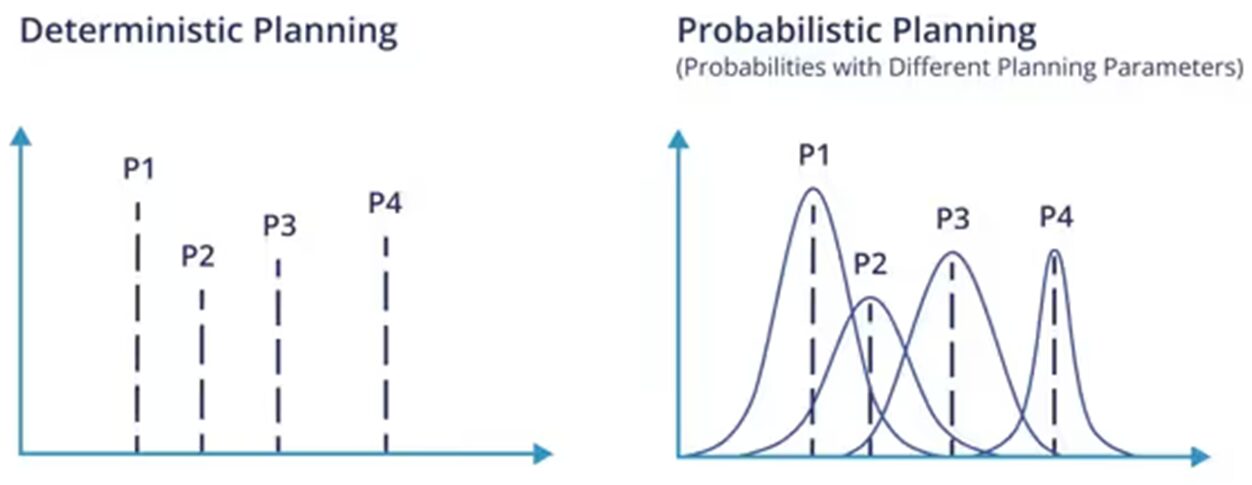
In project management, scheduling is essential to monitor progress and successfully complete projects. The difference between deterministic and probabilistic planning can make the difference between a project that stays on track and a project that faces unexpected delays. At BAEKEN, we use both methodologies to not only manage realistic expectations, but also to increase the focus within the project team, so that the team can get to work in a targeted and decisive manner.
Deterministic scheduling is the foundation of every project. It proposes a clear, fixed timeline for activities, based on assumptions that are, in principle, fixed. This type of schedule is especially useful in situations with little uncertainty. Although deterministic scheduling is necessary to structure the project, it offers little room to anticipate changes and uncertainties that may occur during the project.
Probabilistic scheduling takes into account the uncertainties and variables that often play a role in complex projects. Instead of proposing just one fixed outcome, probabilistic scheduling calculates different scenarios based on risk and probability calculations. This enables project teams to anticipate potential problems and consider multiple outcomes.

At BAEKEN, we link these schedules to the risk dossier, so that we can identify the risks that actually affect the schedule. This helps us to focus the scheduling and prioritize which risks and parts of the project pose the greatest risk of falling behind. This focused approach allows the project team to work more efficiently and mitigate risks in a more targeted manner, often leading to significant cost savings.
Probabilistic scheduling is also important for managing stakeholder expectations. This allows a delivery milestone to be set with a certain degree of certainty, and a necessary time buffer is substantiated with the Monte Carlo analysis.
Although probabilistic scheduling offers a lot of value, deterministic scheduling remains essential. It forms the basis for deadlines and progress monitoring. Probabilistic scheduling functions as a supplement that offers insight into the uncertainties, so that we can focus on the most critical aspects of the planning. By combining both methodologies, we help our clients achieve both stability and flexibility.
By using probabilistic scheduling in combination with a meticulous risk analysis, we can focus on the risks that pose the greatest danger of delay. This enables project teams to set priorities and concentrate on the areas of the project where the greatest risks lie. This allows the team to take decisive and effective action and to deploy resources efficiently to prevent delays and cost overruns.
At BAEKEN, we use probabilistic scheduling not only to propose possible outcomes, but also to focus the project approach. By actively managing uncertainties and setting priorities, projects can be managed in a targeted way, risks can be limited and the chance of successful delivery is considerably increased.
Want to know more about this topic?